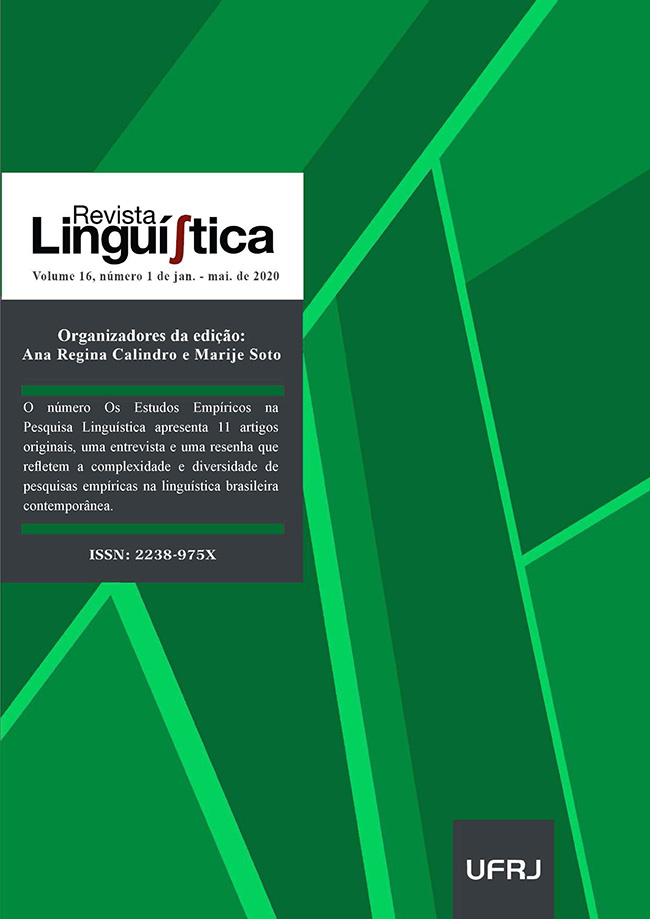Testing children’s knowledge of generic null pronouns
DOI:
https://doi.org/10.31513/linguistica.2020.v16n1a31630Keywords:
generic null pronoun, impersonal structures, language acquisitionAbstract
In this paper, I discuss an experiment conducted with children acquiring Brazilian Portuguese (BP) as their native language. The experiment was designed to test if Brazilian children understand that the null subject in impersonal structures has the generic reading in BP instead of the referential one. The experiment consisted of a Truth-Value Judgement Task (TVJT). The results show that children as young as 4 years of age understand the null subject in impersonals as generic. Based on a study showing that a 2-year-old child acquiring Estonian already produces null impersonals (TORN-LEESIK; VIJA, 2012), it is possible that children acquiring BP correctly assign the generic reading to a null pronoun in impersonal constructions before the age of 4. I propose that this knowledge could be tested in children younger than 4 using the Intermodal Preferential-Looking (IPL) paradigm (GOLINKOFF et al.,1987; NAIGLES; TOVAR, 2012), a method more suitable than the TVJT to test children that are very young.
---
Original in English.
Downloads
Published
Issue
Section
License
Authors who publish in the Revista Linguí∫tica agree with the following terms:
The authors maintain their rights, ceding to the journal the right to first publication of the article, simultaneously submitted to a Creative Commons license permitting the sharing with third-parties of published content as long as it mentions the author and its first publication in the Revista Linguí∫tica.
Authors may enter into additional agreements for the non-exclusive distribution of their published work (for example, posting in online institutional or non-profit repositories, or book chapters) so long as they acknowledge its initial publication in the Revista Linguí∫tica.

The journal Revista Linguí∫tica is published by the Post-Graduate program in Linguistics of UFRJ and employs a Creative Commons - Attribution-NonCommercial 4.0 International (CC-BY-NC).









